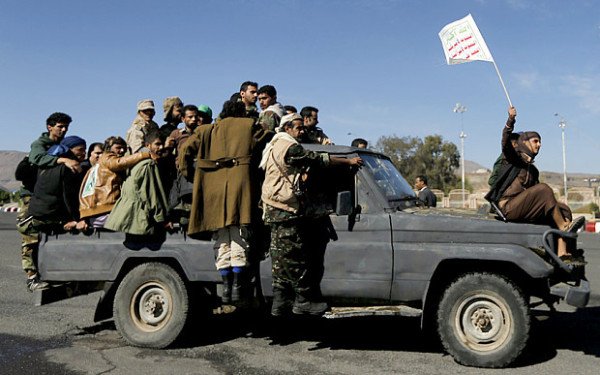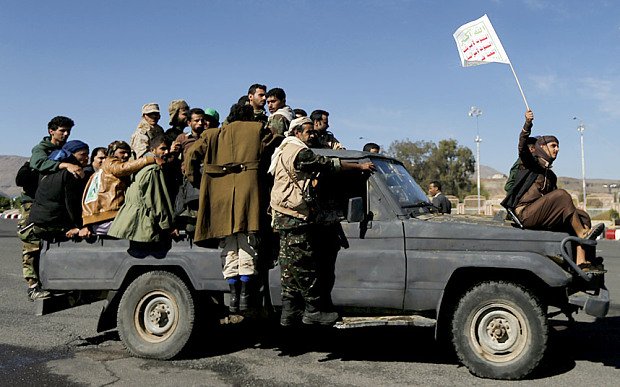Oil prices rose by almost 6% after Saudi Arabia and its allies launched air strikes on Houthi rebel targets in Yemen.
Saudi Arabia is the world’s biggest crude exporter.
The move has raised concerns that the conflict could spread in the oil-rich Middle East and possibly disrupt supplies from the region.
West Texas Intermediate crude futures, the US benchmark, rallied to about $51 a barrel before falling back.
Brent crude climbed to $59.71 a barrel, but has since dipped to $56.50.
Pressure on the oil price eased slightly as it became clear there was no immediate threat to Middle East oil shipments. However, fears remain that Iran could be drawn into the conflict.
Yemen is located along an important international shipping route for global energy producers. But the country is sliding towards civil war.
Houthi rebels receiving support from Iran have marched on the southern Yemeni port city of Aden, where Yemen’s President Abdrabbuh Mansour Hadi took refuge after he was forced him to flee the capital, Sanaa.
Saudi Arabia, supported by regional allies the United Arab Emirates, Bahrain, Qatar and Kuwait, launched airstrikes on Thursday aimed at halting the rebel advance.
Iran and Saudi Arabia are both members of the Organization of Petroleum Exporting Countries (OPEC), the group that produces about 40% of the world’s oil. Oil exports to Europe pass through the narrow Red Sea strait between the port of Aden and Djibouti.
However, the current glut in global oil stocks, built up in part thanks to US shale production and plentiful output from Russia and other producers, means there is unlikely to be an acute crisis in supply.
[youtube ajWdBVgnfEs 650]
